- Home
- Is Bread Bad for Birds?
Is Bread Bad for Birds? Yes! What to Give Them Instead
 Photo by Imad Alassiry
https://unsplash.com/photos/man-in-blue-jacket-and-orange-cap-holding-a-baby-in-orange-jacket-63AEgjnu28U
Photo by Imad Alassiry
https://unsplash.com/photos/man-in-blue-jacket-and-orange-cap-holding-a-baby-in-orange-jacket-63AEgjnu28UIs bread bad for birds? Unfortunately, the answer is yes.
It feels like such a sweet, kind thing to do—tossing bits of bread for the birds, watching them flock around and maybe even take crumbs from your hands.
It seems like you're doing a great service for wildlife, especially during the cold winter months. After all, we want to help those in need, right?
However, as heartwarming as this may seem, nothing could be further from the truth.
Is bread bad for birds? Feeding bread and other human foods to birds is actually harmful to them.
While you may think you're offering a treat, you're inadvertently causing health problems for these creatures.
Here's why bread isn't the best choice for birds, and what you can do instead to truly benefit them.
Why Is Bread Bad For Birds?
Birds need to eat frequently and in large quantities because of their high metabolism.
While bread may seem like an easy snack to offer, it has no real nutritional value for birds.
Though tasty to them, bread fills their stomachs without providing the essential nutrients they need for energy and survival.
This can be especially harmful during winter when food is scarce.
When birds eat too much bread, they may not have space in their stomachs for nutritious food that could keep them healthy and strong.
In fact, small birds that fill up on bread may even face life-threatening consequences.
Without the energy they need, they can struggle to stay warm and may freeze to death overnight. Bread sits in their bellies, leaving them feeling full, but offering no warmth or sustenance to help them survive the cold.
Additionally, bread can sometimes be moldy, which can introduce harmful diseases to the birds.
Even fresh bread is a problem for waterfowl like ducks, geese, and swans. It can cause deformities in their physical development and contribute to pollution in the water where they live, making it harder for them to thrive.
These are some of the reasons we say yes to the question "Is bread bad for birds?". So, while it may feel good to feed the birds, it's important to recognize that bread is not a suitable food for them.
Why Feeding Birds Human Food is Harmful: What You Should Avoid and How to Help
So now we know the anser to the question is bread bad for birds, but what else might people give to birds that is bad for them?
Table scraps, meat, and milk are not suitable for birds and can lead to serious health problems.
Birds have very specific dietary needs, and feeding them inappropriate foods like table scraps can upset their digestive systems.
Meat, in particular, can be too fatty or difficult for birds to digest, and milk can cause stomach upset because many birds are lactose intolerant.
Feeding birds spoiled food is also dangerous. It can carry harmful bacteria that could make them sick.
Similarly, giving them birdseed that’s gone bad or expired can be harmful to their health.
In addition, offering food like chocolate or foods high in salt is toxic to birds. Chocolate contains theobromine, which can be lethal, and too much salt can cause dehydration and kidney problems.
Another problem with feeding birds human food is that it can attract unwanted pests like rats, which might be drawn to the scraps and leftover food. This could create a hazardous environment for both the birds and the surrounding wildlife.
To truly support the well-being of wild birds, it's best to avoid offering them unsuitable foods like these. Instead, offer them fresh, bird-friendly options like seeds, nuts, and fruits. This way, you’ll help them stay healthy and avoid unintended harm.
Is Bread Bad for Birds: How to Feed Birds the Right Way in Winter: Nutritious Treats for Our Feathered Friends
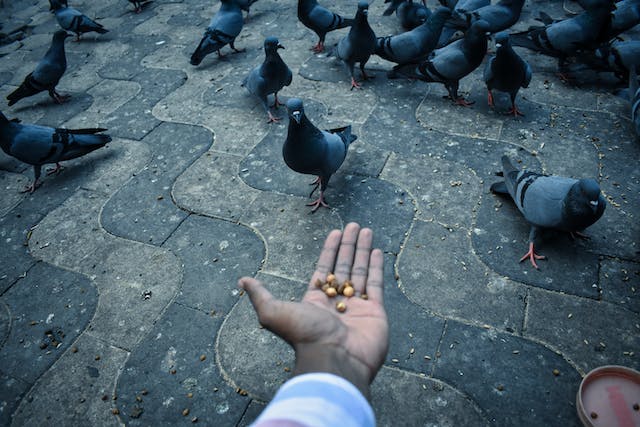 Photo by Soubhagya Maharana.
https://www.pexels.com/photo/seeds-on-a-person-s-hands-for-the-feeding-of-pigeons-12870868/
Photo by Soubhagya Maharana.
https://www.pexels.com/photo/seeds-on-a-person-s-hands-for-the-feeding-of-pigeons-12870868/In the cold winter months, birds need extra care and nutrition to survive.
Their bodies require a lot of fat and energy to stay warm, and providing the right food can make a big difference in their well-being.
We now know that bread does not give them energy to keep warm and that is one reason bread is bad for birds.
On the other hand, seeds and nuts are an excellent starting point, as they are packed with healthy fats and proteins that birds need to stay strong.
In addition to seeds and nuts, many birds enjoy treats like cheese, peanut butter, and fruit.
If you’re looking to spoil your feathered friends, consider offering mealworms, which many birds love and can provide additional protein.
Cracked corn and millet are also great options, and they can be easily found at most bird supply stores.
Eggshells, once cleaned and baked, are another fantastic addition to a bird’s diet. They provide a healthy dose of calcium, which is essential for the birds’ bone health. Simply wash the eggshells, bake them for 10 minutes in the oven to eliminate any bacteria, and then sprinkle them around where the birds can find them.
When you visit your local park or nature reserve, bringing out a mix of eggshells, nuts, and seeds is a great way to give back to the birds. Not only will you be supporting their nutritional needs, but you’ll also enjoy the satisfaction of knowing you’ve done something kind for wildlife.
Different bird species have unique preferences, so observe the birds in your area and learn which foods they enjoy most. By offering a variety of bird-friendly treats, you’ll help ensure they stay healthy, energized, and happy all winter long.
An Essential Guide to Feeding Wildlife Birds in Your Backyard
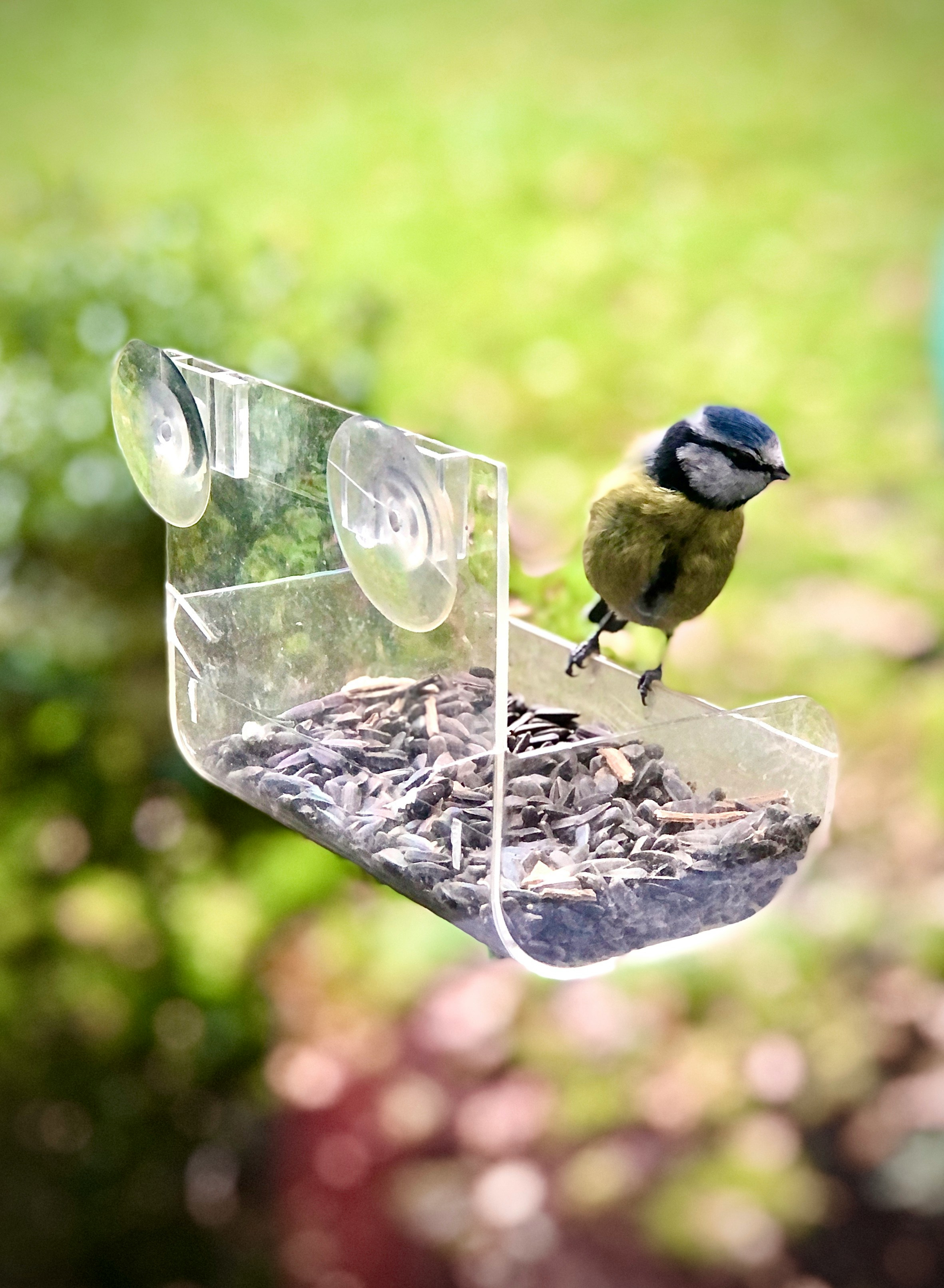 Photo by Dan Barrett
https://unsplash.com/photos/blue-and-yellow-bird-on-clear-glass-bird-feeder-5JjywtgIyQk
Photo by Dan Barrett
https://unsplash.com/photos/blue-and-yellow-bird-on-clear-glass-bird-feeder-5JjywtgIyQkWhen it comes to feeding birds in your backyard, choosing the right type of feeder is essential.
With so many options available, it’s important to consider the species of birds in your area and tailor the food and feeder to their preferences.
Different birds are attracted to different types of food and feeders, so doing a little research can help you provide the best experience for your feathered friends.
For example, tube feeders are great for smaller birds like finches and chickadees, as they allow easy access to seed without wasting too much.
Tray or platform feeders work well for larger birds like doves and sparrows, offering more space for them to land and eat.
Suet feeders are perfect for attracting woodpeckers and other insect-eating birds.
If you’re trying to attract specific species, do some research on what food they prefer and select the right kind of feeder accordingly.
Another key consideration is keeping your feeders safe from other animals, especially squirrels. These clever creatures are known for their acrobatic skills and will do just about anything to reach the birdseed. To avoid this, consider using squirrel-proof feeders or placing the feeders out of reach by hanging them on a pole with a baffle or near a spot where squirrels can’t jump.
By carefully selecting the right feeder and positioning it strategically, you can create an inviting environment for the birds in your backyard, while keeping other pests at bay. Happy birdwatching!
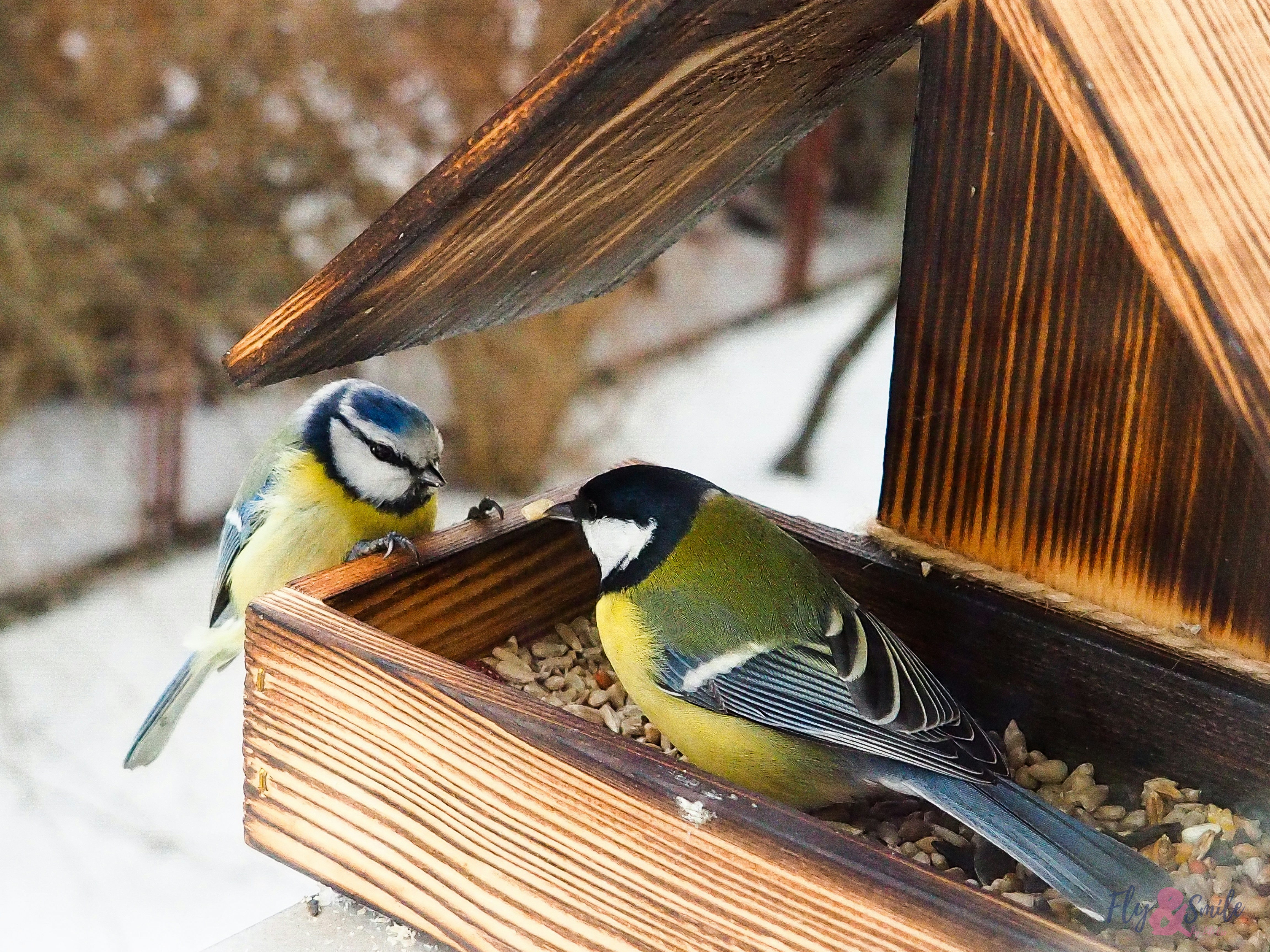 Photo by Lidia Stawinska
https://unsplash.com/photos/yellow-black-and-white-bird-on-brown-wooden-bird-house-6o5Okc2bIaE
Photo by Lidia Stawinska
https://unsplash.com/photos/yellow-black-and-white-bird-on-brown-wooden-bird-house-6o5Okc2bIaEIn addition to food, providing water and shelter for birds is essential for their well-being, especially during the colder months.
Water: Birds need fresh water year-round for drinking, bathing, and keeping their feathers clean.
A bird bath is a great addition to your backyard to meet this need.
Make sure to change the water frequently to keep it fresh and free from contaminants.
In winter, consider using a heated bird bath to prevent the water from freezing, so the birds can continue to access it.
A shallow dish with clean, warm water can make a huge difference for birds when other natural water sources may be frozen or scarce.
Bird Houses: Birdhouses offer a safe place for birds to rest, sleep, or even raise their young.
These shelters are especially important during the winter months, providing birds with a safe, insulated space to escape the cold weather.
When choosing a birdhouse, be sure to select one that's appropriate for the species you are hoping to attract, and consider placing it in a quiet, sheltered area away from predators.
A well-maintained birdhouse can make your yard an even more inviting place for birds looking for comfort during the harsh winter months.
By offering both water and shelter along with food, you’re giving birds the support they need to thrive, whether it's during the heat of summer or the chill of winter.
It’s a small effort that can make a big difference in the lives of your local bird population.
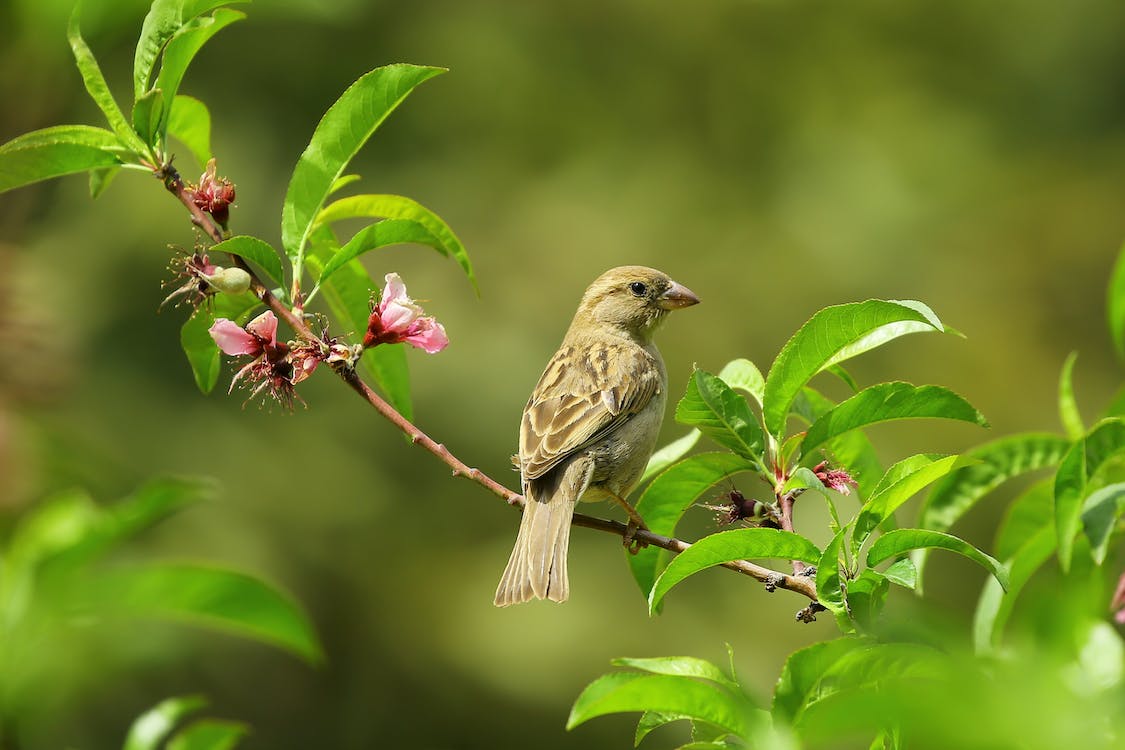 Photo by daniyal ghanavati
https://www.pexels.com/photo/gray-small-bird-on-green-leaves-70069/
Photo by daniyal ghanavati
https://www.pexels.com/photo/gray-small-bird-on-green-leaves-70069/Another great way to create a welcoming environment for birds is by adding the right plants to your yard, deck, or fire escape area.
Plants not only provide natural food sources, but they also offer shelter and nesting opportunities for birds.
Here are some plants that are especially bird-friendly:
Virginia Creeper: This versatile vine can be a wonderful addition to a deck or garden. Its dense foliage provides birds with shelter and protection from the elements. In the fall, the berries it produces are a tasty treat for many bird species, including robins and thrushes.
Holly Trees: With their evergreen leaves and bright red berries, holly trees are a favorite for many birds, especially in winter when food is scarcer. The berries provide an excellent source of nourishment, and the dense branches offer a safe place for birds to hide from predators.
Crabapple Trees: Crabapple trees are not only beautiful but also attract a variety of bird species. Their small, tart apples are particularly loved by birds like cedar waxwings, robins, and even woodpeckers. Plus, their branches offer perches and nesting sites for birds year-round.
Arborvitae Trees: Known for their dense, evergreen foliage, arborvitae trees provide perfect cover for birds seeking shelter from cold winds or predators. Their dense foliage can serve as a nesting site, and they attract a variety of birds, including chickadees and finches.
By incorporating these plants into your yard or deck, you'll create a bird-friendly environment that provides birds with food, shelter, and nesting sites. It's a great way to contribute to the local ecosystem while enjoying the beauty and joy of watching birds visit your space.
Help Wildlife Birds in Winter – Without Bread
There are many ways you can support wildlife birds, especially during the harsh winter months.
Providing them with nutritious food like seeds, nuts, and eggshells is a great way to help them survive when food is scarce.
Water is just as important, so consider setting up a birdbath or a shallow water dish for them.
You can also offer shelter by putting up birdhouses or planting bird-friendly trees and bushes to create a safe space for them.
However, one thing you should not do is feed them bread.
Is bread bad for birds? Yes.
Although it may seem like a kind gesture, bread lacks the nutrients birds need to thrive. It fills them up without offering any real nutritional value, which can leave them weak and malnourished. This is one reason why why bread is bad for birds.
Instead, focus on providing high-fat foods like seeds, nuts, and suet, which are especially helpful in keeping them warm during cold weather.
By following these simple guidelines, you can make a positive impact on the wellbeing of local wildlife birds and ensure they stay healthy and strong through the winter months.



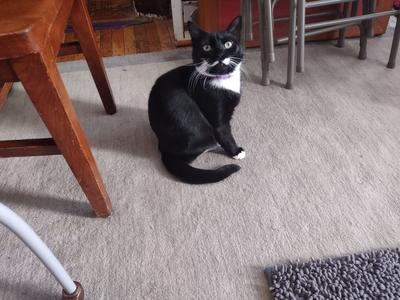


New! Comments
Have your say about what you just read! Leave me a comment in the box below.